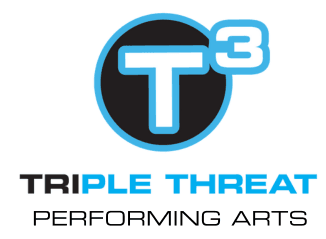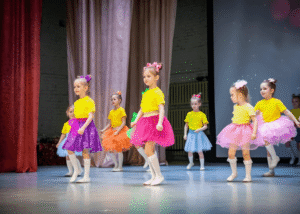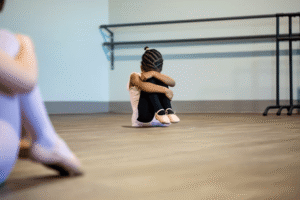Singing lessons for adults open the door to a universal language that resonates deeply within the human spirit, transcending age and connecting people through emotive expression. For adults exploring the world of singing, the journey represents an enriching experience. This comprehensive guide, tailored for those seeking to unlock their inner songbird and refine their vocal abilities, delves deeply into the nuanced aspects of learning to sing as an adult. Discover the joy of singing and embark on a harmonious journey with our expertly crafted adult singing lessons.
1. The Mindset and Goals of a Vocal Journey


In the realm of singing lessons for adults, developing the right mindset is fundamental for success. Maintaining a positive and determined approach is key as individuals embark on the journey of vocal exploration. Like any skill, singing demands perseverance, practice, and patience. Recognizing that progress takes time and dedication is vital for mental preparation. Establishing clear, achievable goals is equally paramount. Whether aspiring to sing for personal enjoyment, perform publicly, or pursue a professional singing career, setting realistic yet challenging objectives shapes the learning trajectory. Join our adult singing lessons to cultivate the right mindset and achieve your vocal aspirations.
2. Discovering Your Voice


- Breathing Techniques: Mastering breath control and understanding breath support is the vocal resonance and power bedrock. Techniques such as diaphragmatic breathing and breath control exercises are critical in enhancing vocal control.
- Vocal Warm-Ups: Establishing a consistent routine for vocal warm-ups helps increase flexibility and prevent strain. It’s a preparatory step that ensures the voice is ready for demanding practice or performance sessions.
- Pitch and Range: Recognizing one’s vocal range and gradually working on expanding it is essential. Vocal exercises focusing on pitch accuracy and control significantly improve a singer’s proficiency.
3. Technical Foundations of Singing


- Posture and Alignment: Correct posture supports optimal breath control and vocal resonance. Engaging in exercises or practices that promote and maintain good posture ensures the voice reaches its full potential.
- Tone and Resonance: Techniques that aid in creating a clear, resonant tone are fundamental. Regular exercises targeting tone quality contribute to vocal strength and clarity.
- Articulation and Diction: Clear articulation and pronunciation are vital for effective lyrical communication. Consistent practice in expression ensures that words and phrases are conveyed clearly and intelligibly.
4. Understanding Musical Elements


- Ear Training: Developing a keen ear for pitch, melody, and harmony is crucial for singers—ear training exercises aid in accurately reproducing and understanding musical elements.
- Basic Music Theory: Understanding fundamental musical concepts such as scales, intervals, rhythm, and notation is advantageous for singers. It enhances overall musicianship and understanding of music.
5. Song Interpretation and Performance


- Emotional Connection: A deep connection with a song is crucial for authentic conveying intended emotions. This emotional depth significantly impacts a singer’s performance.
- Stage Presence: Overcoming stage fright and building confidence during performances is pivotal. Confidence and presence significantly impact audience engagement and the overall quality of the performance.
6. Strategies for Continuous Improvement


- Regular Practice:
A consistent and effective practice routine is the cornerstone of a singer’s progress. Regular practice sessions are not solely about singing songs but encompass various exercises and vocal warm-ups. These routines improve vocal strength, range, and control and aid in developing musical interpretation and performance skills. A well-structured practice routine might involve daily warm-ups, technical exercises focusing on areas of improvement, and repertoire development. It’s crucial to strike a balance between dedicated practice and allowing adequate rest for vocal recovery.
- Self-Evaluation:
Recording and reviewing performances are vital to a singer’s growth. It’s not just about listening but analyzing and evaluating one’s interpretations. It helps identify strengths and areas that need improvement, offering a chance for self-assessment and targeted practice. This practice often includes listening back to recordings, taking notes, and analyzing vocal techniques, tone quality, pitch accuracy, and emotional expression. Self-evaluation fosters a culture of continuous improvement, enabling singers to refine their strategies, delivery, and overall performance.
- Seeking Guidance:
Collaborating with a vocal coach or participating in singing groups or choirs for feedback and motivation is immensely beneficial. A professional vocal coach offers personalized guidance and constructive feedback, tailoring exercises to address individual strengths and weaknesses. Vocal coaching sessions help refine technique, improve performance, and offer invaluable musical interpretation and expression insights. Additionally, singing groups or choirs provide a supportive environment for growth, offering camaraderie and motivation. The collaborative nature of group singing fosters improvement in harmonization, listening skills, and stage presence.
7. Overcoming Challenges in Singing


- Vocal Health: Vocal health is often overlooked in singing. Proper vocal care includes understanding and implementing techniques to prevent strain, damage, or injury to the vocal cords. Hydration, warm-up, cooldown routines, avoiding vocal melody, and managing speaking voice usage are fundamental to maintaining a healthy singing voice. Recognizing signs of vocal fatigue and allowing adequate rest are essential to avoid overexertion and damage.
- Persistence and Patience: In the journey of learning to sing, embracing setbacks as part of the process is crucial for vocal improvement. Patience and persistence are key allies, allowing singers to navigate challenges and continue with determination. Recognizing that progress may not always be linear, embracing the ups and downs is essential for sustaining motivation. At our singing lessons for adults, we understand the importance of persistence in achieving vocal excellence. Join us and embark on a journey of growth and resilience in your singing endeavors.
8. Resources and Further Learning Opportunities


- Vocal Coaches and Classes: Finding the right teacher or classes that suit one’s learning style is crucial. Quality guidance significantly accelerates a singer’s progress.
- Online Resources: Online tutorials, courses, and practice tools are immensely beneficial. The Internet offers a wealth of resources for continuous learning.
- Community and Support: Joining singing groups or communities fosters camaraderie and motivation. Peer support provides a nurturing and encouraging environment for growth.
Conclusion
Learning to sing as an adult is an empowering journey of self-discovery and artistic growth. Embracing the process, remaining dedicated, and cherishing the progress made are pivotal to unlocking your inner songbird. It’s about finding joy in your voice and sharing it with the world with T3 Triple Threat singing classes.




